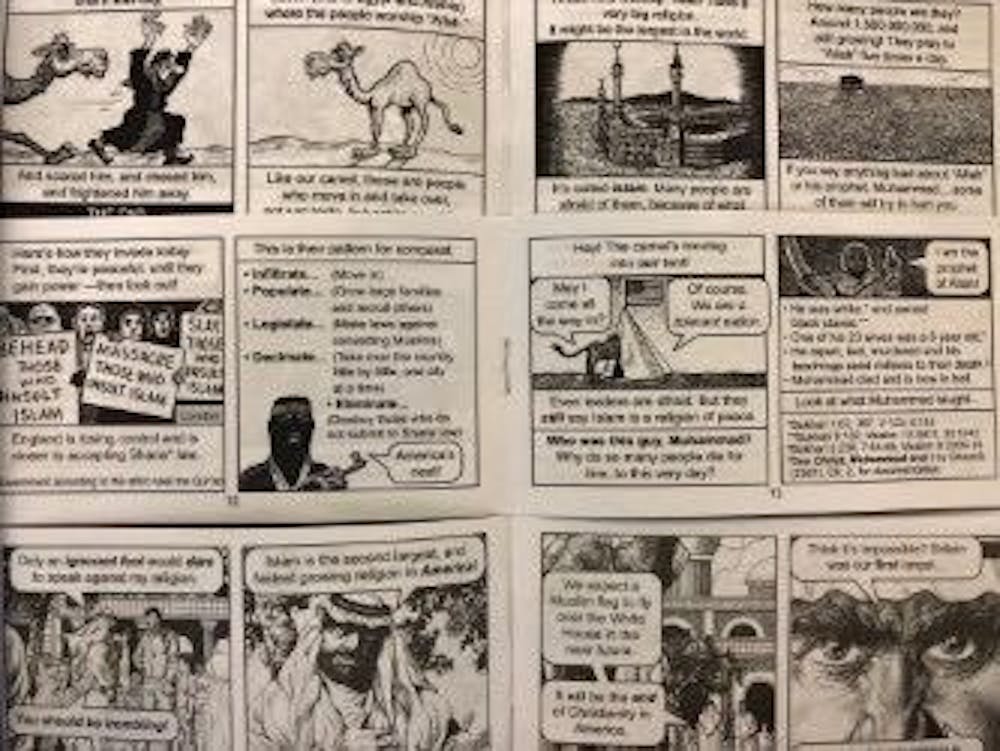When Amira Mustafa saw the contents of an envelope addressed to the UNC Muslim Students Association on Sept. 18, she wasn't fazed — even though inside the envelope was a collection of small comic booklets espousing several negative stereotypes about Muslims.
But the specific ignorance caught her off guard.
The comics included angry imagery of camels and Muslims, as well as warnings about Islam's invasion into Western countries. One cartoon read, "If you say anything bad about 'Allah' or his prophet, Muhammad...some of them will try to hurt you."
Another cartoon strip read, "Here's how they invade today. First, they're peaceful, until they gain power — then look out! England is losing control and is closer to accepting Sharia* (sic) law."
“It's definitely an eye-opener because we go about our lives as any other student on this campus," MSA publicity chairperson Malak Harb said. "For us to receive things like that, it kind of makes us stop for a second and realize, you know what, there are people who see us as less than. They try to make it very clear to us that we are not like everyone else.”
Despite Arabs making up only a small portion of the Muslim population, Harb said the hate mail included cartoons both in English and poorly written Arabic. Although Harb said she has personally received hate messages regarding her religion on Facebook separate from her involvement with MSA, this hate mail was different in its cartoon nature.
The return address on the envelope was from a Las Vegas location. Due to its origin, Harb said the MSA has not reported the hate mail because it appears to be unrelated to the University community. She said the MSA wants to focus on more important organization goals.
But Harb and other MSA members said there’s been a rise in noticeable Islamophobia since the 2016 election, which manifests itself in small looks and interactions.
“A lot of times I just feel unwanted in a lot of places, even in the grocery store or something,” Mustafa said. “It's just very unwelcome stares, and I know a lot of people that experience things like this, so I know it's not in my head.”




